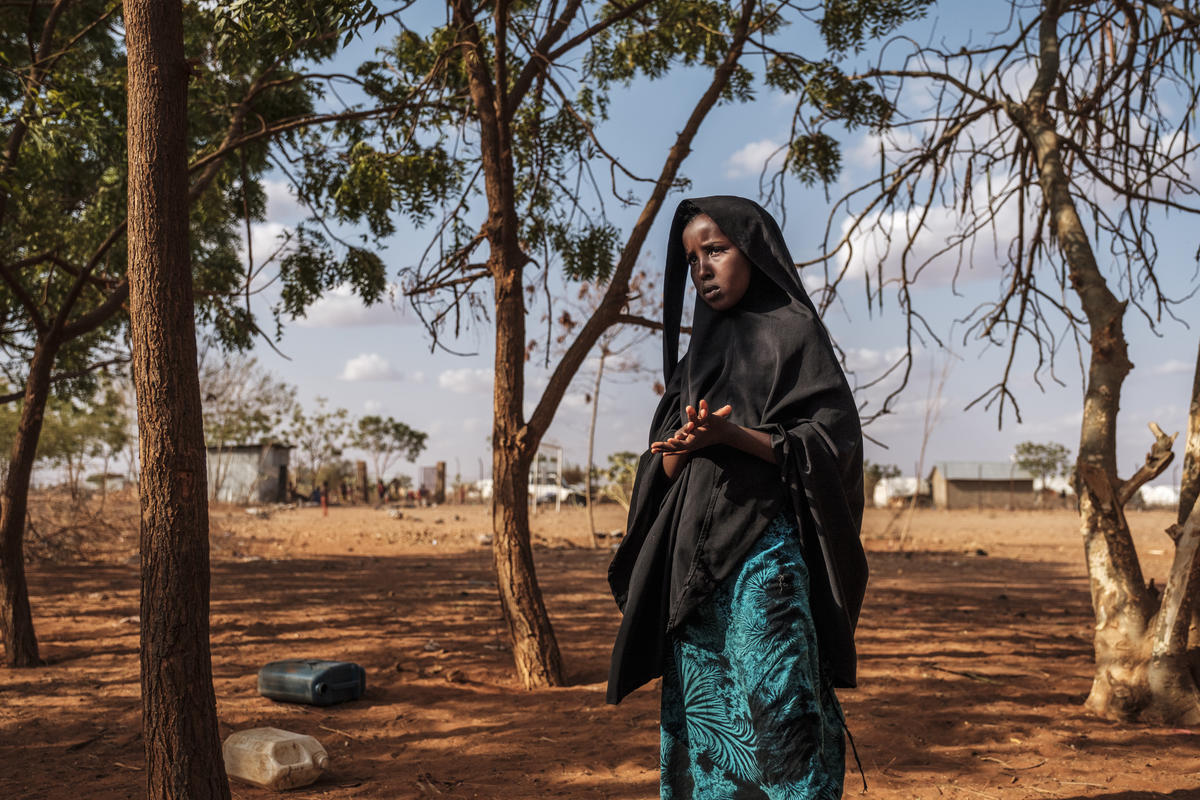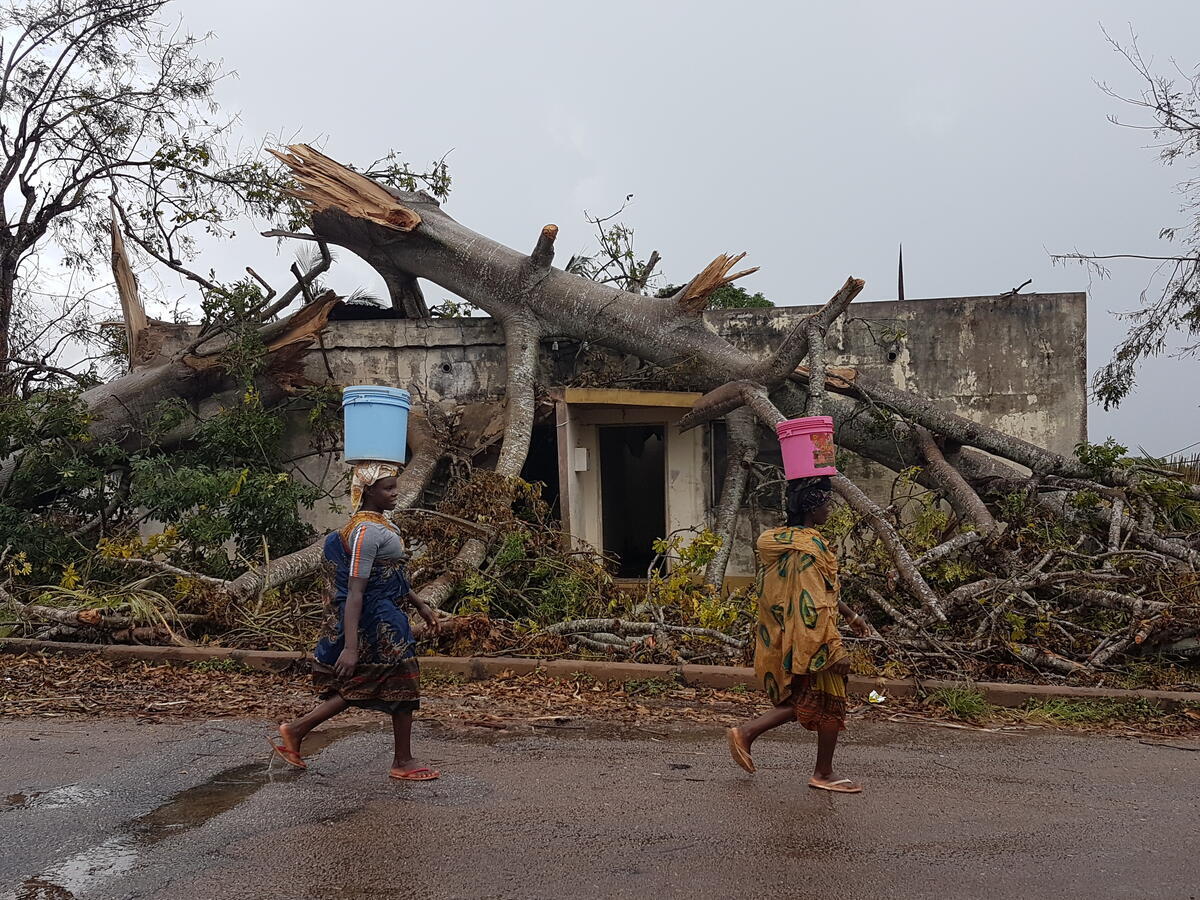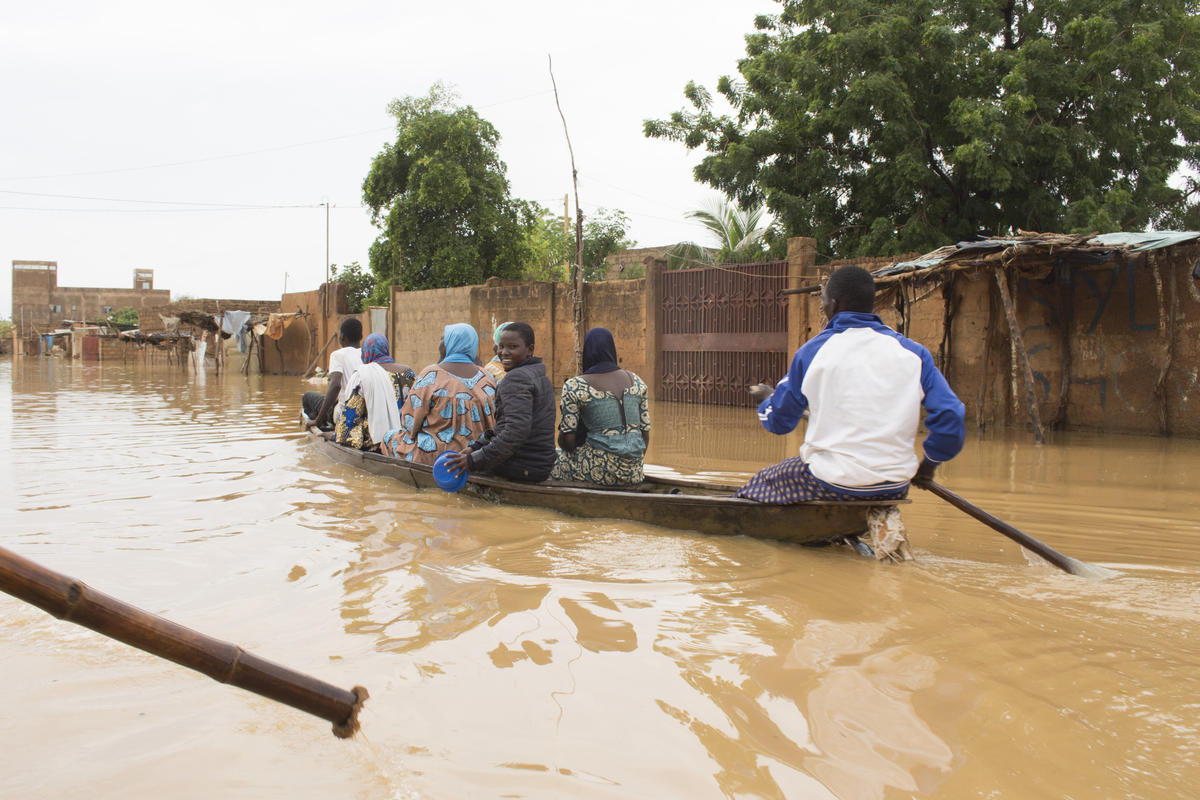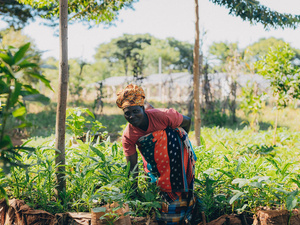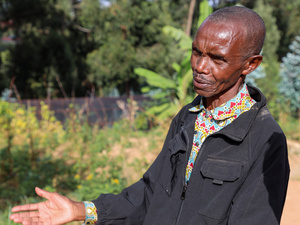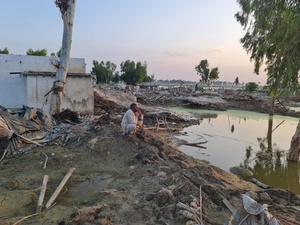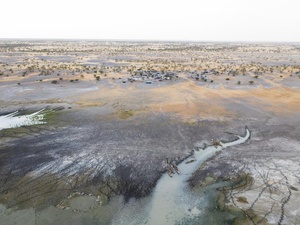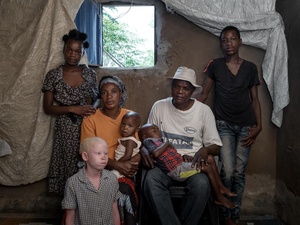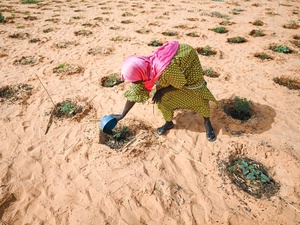Climate change forum in Cape Verde gives voice to forcibly displaced persons in Africa
Climate change forum in Cape Verde gives voice to forcibly displaced persons in Africa
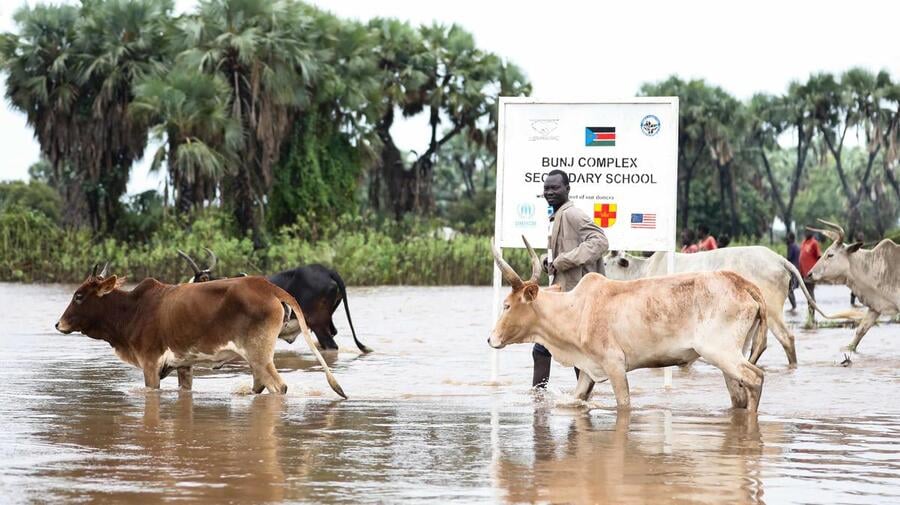
A South Sudanese cattle herder ushers his livestock down a flooded road in Bunj, South Sudan.
UNHCR, the UN Refugee Agency (UNHCR), the African Union and the UN Economic Commission for Africa partnered to convene an event on Climate Change and Displacement in Africa, including other UN development and humanitarian agencies and practitioners of international law.
The event, which took place on 14 September, was held in the margins of the 9th Annual Conference on Climate Change and Development in Africa (CCDA-IX) entitled “Towards a just transition that delivers jobs, prosperity and climate resilience in Africa: leveraging the green and blue economy.”
Symbolically hosted by Cape Verde, located off the Western coast of the African continent, one of the Small Island Development States facing the perils caused by climate change, about which the UN Secretary-General, Antonio Guterres sounded the alarm back in 2019, stating “they do not have the luxury of time.”
In his official opening remarks, Cape Verde’s Minister of Environment, Gilberto Silva said, “Africa is more vulnerable and disadvantaged by its weather patterns aggravated by poverty and deficient technology to mitigate the impact of climate change. I appeal to the African Union and United Nations Economic Commission for Africa to support member states as a guide to minimize greenhouse emissions and build resilience from the adverse impacts of climate change.”
“I have suffered twice, once I fled from home due to conflict and now, by climate change.”
The United Nations Economic Commission for Africa (UNECA) noted that food insecurity remains one of the greatest challenges of climate change on displaced populations, adding that climate change continues to affect food availability, reduce access to food and affect food quality.
The event also featured participation by refugees and internally displaced people from Somalia, Burundi and South Sudan, who have been directly impacted by the increasingly changing weather patterns on the continent witnessed over the past years. They were able to share their concerns and appealed directly to member states to act, by creating clean jobs and building climate-resilient shelters.
“I have suffered twice, once I fled from home due to conflict and now, by climate change – strong winds, water and increasing temperature levels. I was helpless as water and wind swept my shelter from under our feet time and time again,” said Dheeraad Abdi Cuncun, a Somali residing in Raf Iyo Raho IDP settlement in Bossaso, Somalia.
Presentations by climate experts, academia, policymakers, partners and UN agencies noted that displacement was often triggered by disasters, climate change and conflict in many countries within Africa, leading to acute humanitarian and protection needs. They advocated for adaptation and mitigation measures that include pathways for regular movement to prevent displacement and proper application of international refugee instruments for protection of displaced people, with an emphasis on partnerships that can address emerging challenges from climate changes.
While acknowledging the inter-agency efforts being made to combat climate change, Clementine Nkweta-Salami, UNHCR’s Director for the East, Horn of Africa and Great Lakes regional bureau said, “UNHCR has joined the UN-wide efforts to become climate compatible. I urge that we promote responsibility-sharing arrangements amongst States, which can expand support to countries and regions receiving large numbers of refugees, strengthen protection, help stabilize displacement situations and improve access to solutions while applying and adapting the Comprehensive Refugee Response Framework, (CRRF) approach to specific contexts.”
Ms. Nkweta-Salami noted the example of Burundi - considered one of the 20 most vulnerable countries globally because of climate change - where in 2020, the number of IDPs increased and the number of refugee returns reached over 150,000.
“Burundi has faced the dual pressure of large-scale returns in a context where climate shocks are recurring and infrastructure is weak,” said Nkweta-Salami, reiterating the need to take stock of recent key developments and impact of climate change through the lenses of UNHCR’s Strategic Framework for Climate Action and the Global Compact on Refugees (GCR).
“I urge [member States] to redouble their efforts in addressing the global challenges of climate change.”
In their analysis of climate change dynamics, participants noted knowledge gaps with a call for more research to ensure implementation of relevant legal instruments including the 2009 Kampala Convention on IDPs, and under specific circumstances, the 1951 Refugee Convention and 1969 OAU Convention Governing the Specific Aspects of Refugee Problems in Africa. Researchers and academics were encouraged to engage on climate change related projects that address protection needs of displaced persons in collaboration with regional and international actors.
“The narrative of climate change has been exacerbated with the advent of the nefarious impact of the COVID-19 pandemic. The African Union remains committed to support member states, but I urge them to redouble their efforts in addressing the global challenges of climate change,” said Amira Alfadil, Commissioner for Health, Humanitarian Affairs and Social Development at the African Union Commission (AUC).
The conference was a call-to-action ahead of the 26th session of the Conference of the Parties (COP 26) to the United Nations Framework Convention on Climate Change that will soon take place in Glasgow.


